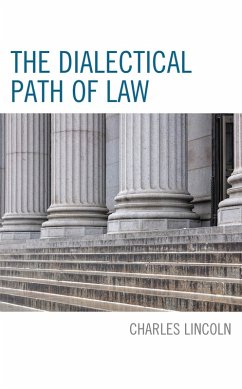This book aims to contribute a single idea - a new way to interpret legal decisions in any field of law and in any capacity of interpreting law through a theory called legal dialects. This theory of the dialectical path of law uses the Hegelian dialectic which compares and contrasts two ideas, showing how they are concurrently the same but separate, without the original ideas losing their inherent and distinctive properties - what in Hegelian terms is referred to as the sublation. To demonstrate this theory, Lincoln takes different aspects of international tax law and corporate law, two fields that seem entirely contradictory, and shows how they are similar without disregarding their key theoretical properties. Primarily focusing on the technical rules of the Organisation for Economic Co-operation and Development (OECD) approach to international tax law and the United States approach to tax law, Lincoln shows that both engage in the Hegelian dialectical approach to law.
Bitte wählen Sie Ihr Anliegen aus.
Rechnungen
Retourenschein anfordern
Bestellstatus
Storno









